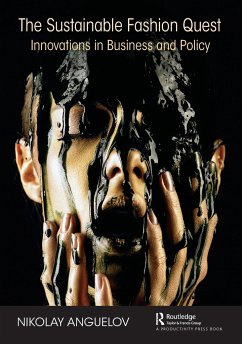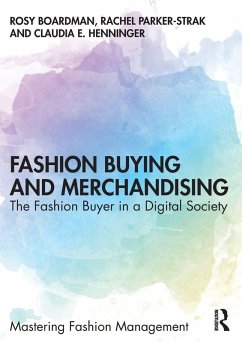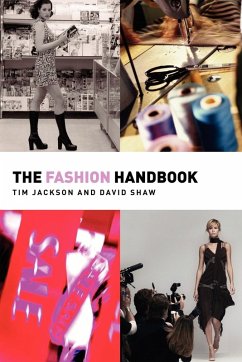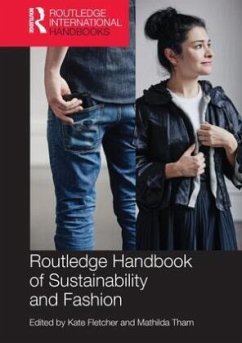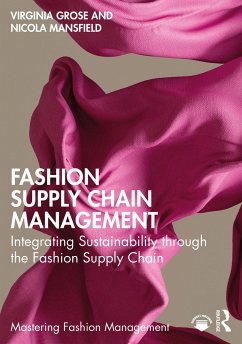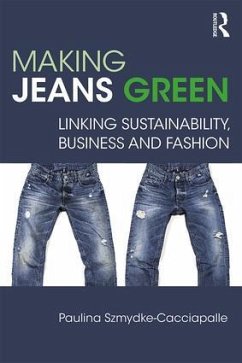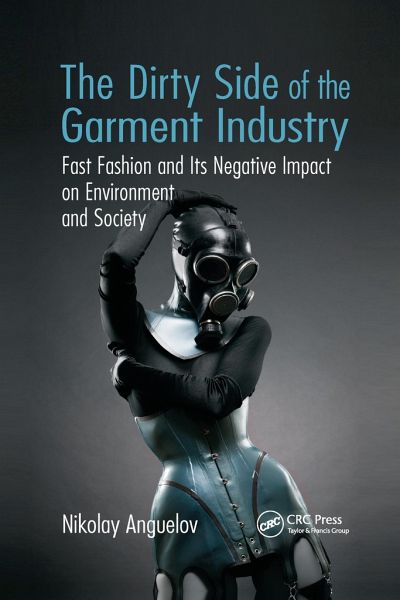
The Dirty Side of the Garment Industry
Fast Fashion and Its Negative Impact on Environment and Society
Versandkostenfrei!
Versandfertig in 6-10 Tagen
36,99 €
inkl. MwSt.
Weitere Ausgaben:

PAYBACK Punkte
18 °P sammeln!
When thinking about lowering or changing consumption to lower carbon footprints, the obvious offenders come easily to mind: petroleum and petroleum products, paper and plastic, even food. But not clothes. Although the clothing industry is the second largest polluter after agriculture, most consumers do not think of clothes as a source of environmental damage. The Dirty Side of the Garment Industry: Fast Fashion and its Negative Impact on Environment and Society exposes how clever marketing tactics designed to increase demand skillfully hide this reality.An in-depth examination of the internati...
When thinking about lowering or changing consumption to lower carbon footprints, the obvious offenders come easily to mind: petroleum and petroleum products, paper and plastic, even food. But not clothes. Although the clothing industry is the second largest polluter after agriculture, most consumers do not think of clothes as a source of environmental damage. The Dirty Side of the Garment Industry: Fast Fashion and its Negative Impact on Environment and Society exposes how clever marketing tactics designed to increase demand skillfully hide this reality.
An in-depth examination of the international fashion trade and related goods, this book raises visibility of the ethical aspects of promoting overconsumption through explaining the ecological damage resulting from the high rate of discarding old clothes. It focuses on the promotion, globalization, and integration of the apparel sector into our social and political landscape. It presents an expert overview of the garment industry, highlighting the harsh realities of the environmental and labor problems associated with it. It tracks the commercial and cultural factors that have led to the growth of fast fashion retail and its dominance of the entire industry.
The book covers current regulatory policies, both national and international, on production and labor, and the author does not shy away from making recommendations for change. He examines marketing, business, and economic models to explain how assumptions of traditional economic theory on industrial growth and prosperity fall short in addressing the high social costs of promoting the overconsumption of cheap and readily disposable clothes. You will come away with a detailed, holistic understanding of the garment industry as well as clarity regarding the larger issue of finding balance when it comes to the ethics of consumption.
An in-depth examination of the international fashion trade and related goods, this book raises visibility of the ethical aspects of promoting overconsumption through explaining the ecological damage resulting from the high rate of discarding old clothes. It focuses on the promotion, globalization, and integration of the apparel sector into our social and political landscape. It presents an expert overview of the garment industry, highlighting the harsh realities of the environmental and labor problems associated with it. It tracks the commercial and cultural factors that have led to the growth of fast fashion retail and its dominance of the entire industry.
The book covers current regulatory policies, both national and international, on production and labor, and the author does not shy away from making recommendations for change. He examines marketing, business, and economic models to explain how assumptions of traditional economic theory on industrial growth and prosperity fall short in addressing the high social costs of promoting the overconsumption of cheap and readily disposable clothes. You will come away with a detailed, holistic understanding of the garment industry as well as clarity regarding the larger issue of finding balance when it comes to the ethics of consumption.





